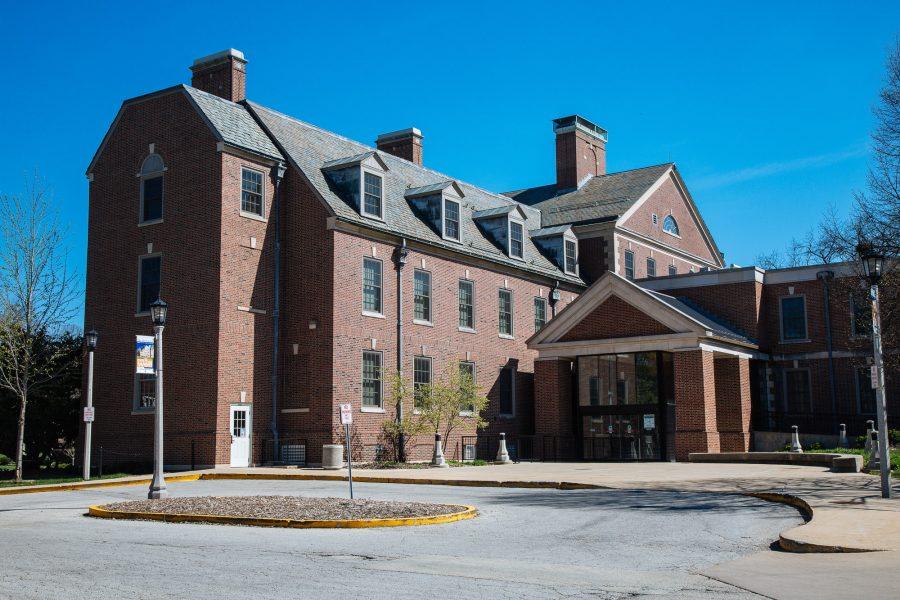Student health insurance cost could increase by 10 percent
Possible student health insurance increase leaves students uncertain about financial future.
Wenyuan Chen | The Daily Illini
Photo of the McKinley Health Center on 1109 S. Lincoln Ave. on April 17, 2016.
November 28, 2016
The daughter of a mechanic and a Chicago public schools office assistant, sophomore in LAS Fabiola Padilla has already had to take out $13,000 in loans in order to afford the University.
For her family, every dime counts when it comes to paying for her college education. A substantial increase in any student rate could push them over the edge.
McKinley Health Director Robert Palinkas mentioned during an Illinois Student Senate meeting that student health insurance premiums may increase by at least 10 percent next fall. Padilla is unsure of how that will affect her family financially. She noted her dad cannot pay for an increase in student rates.
“I feel like (my dad) is going to have this breaking point where he won’t be able to pay for school anymore,” Padilla said.
As of now, the student health insurance plan costs $320 per semester for undergraduate students. The plan, provided by United Healthcare, covers all elements required by the Affordable Care Act as well as the most necessary medical expenses a student might encounter in the event of an illness or accident, Palinkas said in an email.
Get The Daily Illini in your inbox!
When students are registering for the University, they are required to provide information about their family’s health insurance plan so McKinley can evaluate it for equivalency to the University’s plan. This year, 1,720 requests to waive the health insurance fee were denied, including Padilla’s.
“I should have a choice of whether I want (the student health insurance) or not, especially because I have insurance,” Padilla said. “I shouldn’t be forced to pay for it.”
There are a variety of reasons why a family’s health insurance plan might not be considered equivalent to the University one. Palinkas noted that national increases in health insurance premium costs prompted parents to purchase less expensive policies, that are unequal to the University’s.
“When a policy fails to cover adequate mental health care, or if the parental policy requires that the student pays the first five thousand dollars of cost, or if it fails to meet the requirements of the Affordable Care Act, or fails to have a decent local network of specialists, then the request to waive the fee for University insurance is denied,” Palinkas said.
The process for selecting a health care provider for the University plan as well as approving all fees that students encounter is led by both the Student Advisory Committee and McKinley Health Center.
“Two years ago, we went on a request of proposals and we asked for insurance companies to submit a bid to provide services for the campus community,” Associate Vice Chancellor of Student Affairs Lowa Mwilambwe said.
In a request for proposals, the University asked for different health care companies to submit their insurance rates as well as what their coverage entails. The one with the lowest rates and best coverage — United Healthcare — was chosen.
Unfortunately, if the insurance company is not making the amount of money from its clients that it anticipated, the rates can increase. This is happening with United Healthcare.
“The insurance company estimates the number of claims and how much it’s going to cost them,” Mwilambwe said. “If the claims exceed what they estimated, then the following year, they probably will increase their rates.”
The game changes slightly with new President-elect Donald Trump’s inauguration this January. Throughout his campaign, Trump promised to repeal and replace the Affordable Care Act, thus decreasing health insurance premiums. As Trump is not in office yet, however, Mwilambwe can only speculate on how his presidency will affect student health insurance rates.
“I cannot tell (what is going to happen), I think we’ll have to wait until the new president elect takes over and decides on how he wants that area handled,” he said.
Although no concrete fee increase has been set by United Healthcare, no concrete solution to the possibility has been set or explored.
“Health insurance is going up on a very broad national basis; we are not immune to these influences,” Palinkas said. “It will take the wisdom of all of us to come up with solutions that work.”
However, Padilla is still uneasy.
“It’s really stressful,” she said. “It’s a big burden on me.”







